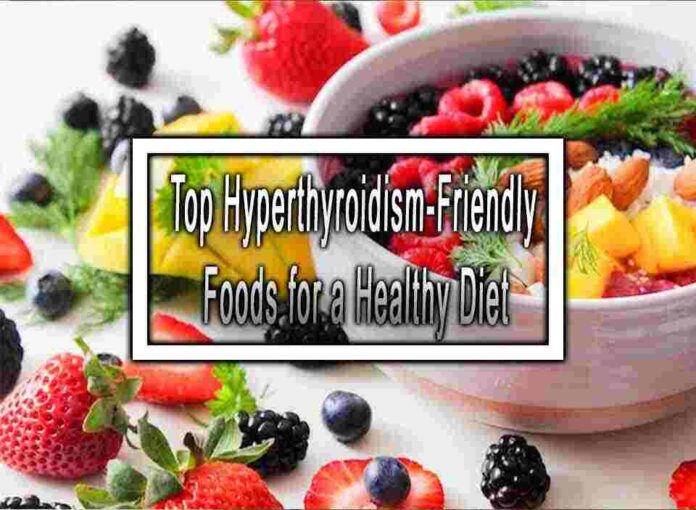When managing hyperthyroidism, it’s important to maintain a healthy and balanced diet to support your overall well-being. While there are no specific foods that can cure hyperthyroidism, certain nutrients and dietary choices may help alleviate symptoms and support thyroid health. Here are some hyperthyroidism-friendly foods to consider:
1. Foods rich in iodine
Iodine is essential for proper thyroid function. However, excessive iodine intake may worsen hyperthyroidism, so it’s important to consume it in moderate amounts. Good sources of iodine include seaweed (such as kelp or nori), seafood (like fish and shellfish), dairy products, and iodized salt.
2. Cruciferous vegetables
These vegetables contain compounds called glucosinolates, which can interfere with thyroid hormone synthesis when consumed in large amounts. However, cooking cruciferous vegetables can reduce the goitrogenic effects. Examples of cruciferous vegetables include broccoli, cauliflower, cabbage, kale, Brussels sprouts, and bok choy. It’s generally advised to consume them in moderate portions.
3. Lean proteins
Including lean proteins in your diet is important for supporting overall health. Good options include poultry (such as chicken and turkey), fish (like salmon and tuna), legumes (beans, lentils), and tofu. Protein helps with tissue repair and metabolism regulation.

4. Foods rich in selenium
Selenium is an important mineral that plays a role in thyroid hormone metabolism and antioxidant function. Selenium-rich foods include Brazil nuts, seafood (such as tuna and shrimp), sunflower seeds, eggs, and mushrooms. However, it’s important not to exceed the recommended intake of selenium, as excessive amounts can have adverse effects.
5. Healthy fats
Consuming healthy fats is essential for overall health and can support hormone production and regulation. Good sources of healthy fats include avocados, nuts (such as almonds and walnuts), seeds (like flaxseeds and chia seeds), and olive oil. These fats also help promote satiety and support cardiovascular health.
6. Fiber-rich foods
A diet rich in fiber can help support digestion and regulate blood sugar levels. Good sources of fiber include whole grains (such as oats and brown rice), fruits, vegetables, and legumes. Aim to incorporate a variety of these foods into your meals.
7. Anti-inflammatory foods
Chronic inflammation can contribute to thyroid issues. Including anti-inflammatory foods in your diet may help manage symptoms. Examples of anti-inflammatory foods include fatty fish (like salmon and sardines), berries, leafy greens, turmeric, ginger, and green tea.
Remember, it’s always best to consult with a healthcare professional or registered dietitian who can provide personalized advice and guidance tailored to your specific needs and medical condition. They can help you create a well-rounded diet plan that supports your overall health and addresses your hyperthyroidism.










